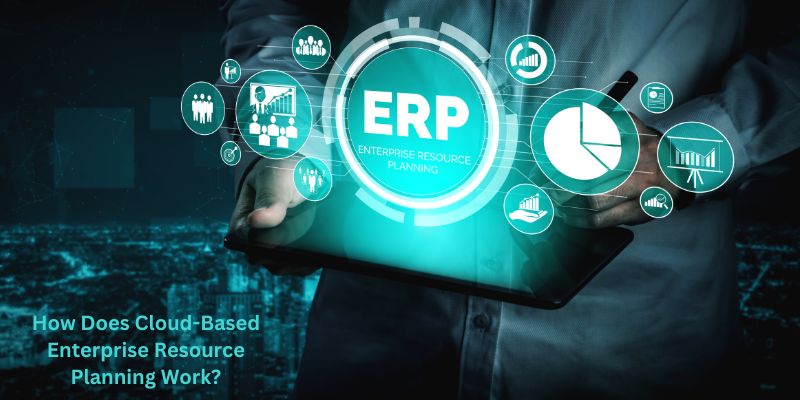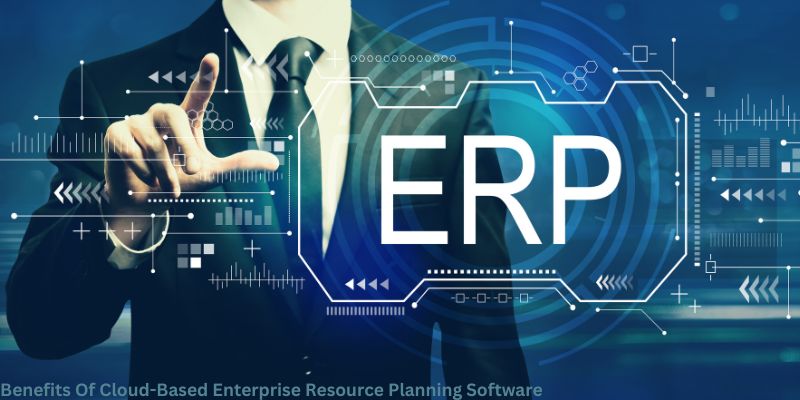In today’s fast-paced business landscape, organizations are constantly striving to enhance efficiency and streamline their operations. One technology that has gained significant traction in recent years is cloud-based enterprise resource planning (ERP). With its ability to centralize data, automate processes, and provide real-time insights, cloud-based ERP has revolutionized how businesses operate. In this acameramen.com blog post, we will delve into the world of cloud-based ERP. So, whether you are a small startup or a large corporation, join us as we unlock the potential of cloud-based ERP and discover how it can propel your business towards greater success.
1. What Is Cloud-Based Enterprise Resource Planning?

An enterprise resource planning (ERP) system called cloud ERP allows businesses to use it online as opposed to an on-premises network. It functions using a vendor’s cloud platform. By integrating and automating vital financial and operational business activities, ERP software aids in purchasing, production, distribution, and fulfillment. The supply chain, orders, and inventory are all managed by it as well. The application is used online by businesses, so all they need is a browser and an internet connection.
The capability of cloud ERP software is the same as or greater than that of on-premises systems without the majority of drawbacks, such as upfront license costs, because it is hosted by the ERP provider and offered as a service to enterprises.
According to IDC’s analysis, the capacity of cloud-based ERP systems to access and analyze enormous volumes of data in almost real-time has increased demand for these systems.
This frees up finance teams to focus on monitoring the cash runway and responding fast to audits or other requests for performance data while also providing sales teams with real-time inventory information.
2. How Does Cloud-Based Enterprise Resource Planning Work?

High-speed internet networks connect several technologies that are used by cloud ERP systems. The cloud ERP is constantly online, and the ERP provider takes care of security upgrades. Your team just needs to worry about signing in and using the ERP and the data it contains. Compared to traditional ERP systems housed on company-owned servers, this might result in a reduced total cost of ownership.
Users of desktop PCs or mobile devices can often access cloud ERPs. They come with a variety of business apps to keep your company running smoothly while putting an emphasis on a satisfying client experience and successful business outcomes.
Your staff will be able to access whatever information they require wherever their job takes them with the help of cloud-based ERPs, from client sales meetings to remote work sites to your home office. These ERPs provide nearly endless scaling options. In the post-COVID corporate climate, when more employees are working from home and other distant places than ever before, it is imperative to have the ability to securely log in from anywhere.
The capacity to access client information, sales records, financial data, human resources management tools, real-time operating metrics, supply chain status, and other information is among the key aspects. Almost every computer system your business needs may be connected via a cloud ERP.
You may select from a variety of deployment models with modules and settings tailored to your particular type of business, depending on your needs. This might help your team stay focused on the proper measurements and procedure to achieve the objectives of your business.
3. Benefits Of Cloud-Based Enterprise Resource Planning Software

- Operating and infrastructure expenses up front. One of a cloud-based ERP solution’s key benefits is the overall decrease in costs, which start with implementation. In the case of on-premises ERP, a business will incur upfront costs for the purchase of servers, the creation of databases, the beginning of the installation process, the employment of consultants and IT staff, as well as for safety and backup.
- Speed of implementation. In one survey, roughly half of the organizations reported that their deployments were completed in the anticipated period, making implementation time one of the largest obstacles for any new ERP solution. This factor can directly effect business downtime and time to value. A cloud-based ERP system often allows a firm to be up and operating more rapidly than an on-premises system since it does not need employing IT professionals or selecting and setting up hardware.
- Accessibility. Users of cloud-based ERP systems get instant access to corporate data from any location and on any device. As a result, choices may be made more quickly and confidently by all employees within the organization, regardless of business unit or location.
- Scalability. Cloud-based ERP systems make expanding a firm easier since they eliminate the difficulties of deploying extra servers for more users, regions, or subsidiaries. Cloud ERP expands along with a business’s growth.
- Adaptability and customization. In the same way that cloud-based ERP can grow with an organization, it can also be more readily tailored to meet specific business needs, either right away or over time as a company expands and changes. Even while on-premises ERP software may be customized, such adjustments are bound to the current version and may be challenging to reimplement with future updates, especially if connectors were built in-house. This is one of the key reasons some companies decide not to update their on-premises ERP systems and stick with outdated hardware.
Conclusion
In conclusion, cloud-based enterprise resource planning (ERP) offers numerous benefits for businesses of all sizes. By leveraging the power of the cloud, organizations can streamline their operations, enhance collaboration, and gain real-time visibility into their business processes. The scalability and flexibility of cloud-based ERP solutions allow companies to easily adapt to changing market conditions and grow their business without the need for significant investment in hardware or infrastructure.
Additionally, the security measures implemented by cloud service providers ensure that sensitive data is protected, giving businesses peace of mind. Overall, cloud-based ERP provides a cost-effective and efficient solution for managing and optimizing business processes, enabling organizations to stay competitive in today’s fast-paced, digital world.
I hope you found this article about cloud-based enterprise resource planning useful. Have a good day!